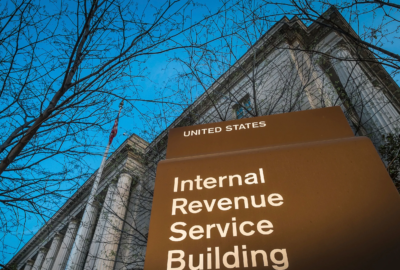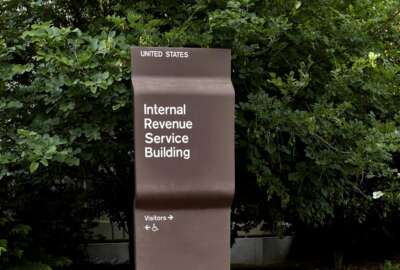

Agency leadership held a conference call with members of the IRS Advisory Council on Feb. 13, a volunteer group 75 tax professionals, to get their input on tax ...
Best listening experience is on Chrome, Firefox or Safari. Subscribe to Federal Drive’s daily audio interviews on Apple Podcasts or PodcastOne.
Nearly a month into the tax filing season, the IRS continues to dig out from the backlog of work created by the 35-day partial government shutdown.
Agency leadership held a conference call with members of the IRS Advisory Council on Feb. 13, a volunteer group of 75 tax professionals, to get their input on tax administration issues. That session made up for a January meeting postponed under the lapse in funding.
Kathy Hettick, one of three co-chairs of the IRS Advisory Council, and the owner of Hettick Accounting & Tax, said this year, IRSAC members have remained focused on their work, despite delays in connecting with the agency.
“We want to make sure that we’re still keeping that motivation among the team members, that we have a valuable place,” Hettick said in a Feb. 5 interview. “People are excited to serve, and then the year starts off, and we’re kind of stalled out a little bit.”
IRSAC released its annual report in November, and usually meets with IRS leadership five times a year.
On Jan. 28, the first day of this year’s filing season, IRS hit the ground running, receiving several million tax returns by midday. Before the April deadline, the agency expects to receive more than 150 million tax returns.
The agency has given taxpayers a heads-up when it expects longer-than-usual wait times over the phone. For example, Tuesday marked the busiest day in terms of phone-call volume for the IRS.
During the partial government shutdown, phone wait times for people instructed by the IRS to set up payment plans stretched to 80 minutes, National Taxpayer Advocate Nina Olson told the Federal Drive with Tom Temin. Only 7 percent of callers got through at all.
The agency showed signs of progress the first week after the shutdown, but handled phone calls at a slower rate, compared to the year before.
Accounts management, the primary point of contact for taxpayer questions, answered less than half of its incoming calls the first week after the shutdown, and the average wait time clocked in at 17 minutes.
By comparison, the agency answered 86 percent of calls routed to accounts management in the first week of last year’s filing season, and the average wait time was only four minutes.
In her capacity as a tax professional, Hettick said she’s found ways to avoid long wait times.
“I call at really odd times — like, I’ll call on a Friday night. But I think it’s frustrating for everyone,” she said. “I don’t think there’s anyone that’s not frustrated by that.”
The IRS, as part of its five-year strategic plan it launched last year, has focused on steering more taxpayers to its website to get the help they need.
“The immediate and substantial cost savings created by taxpayers using digital channels allows the IRS to leverage data-driven technologies to improve phone and in-person contact support channels,” IRSAC wrote in its report last November.
Prior to the shutdown, the Treasury Inspector General for Tax Administration and the National Treasury Employees Union had expressed concerns over whether the IRS would manage to start the filing season on-time, citing an increased workload under the Tax Cuts and Jobs Act and a shrinking workforce and budget.
The full effects of the shutdown on the IRS won’t be known until “months, and even years, down the road,” Olson wrote in her report to Congress.
Hettick said the tax professional community will probably have to wait years until the courts hand down rulings on changes to some of the more complex parts of the tax code.
“When you have a tax act that is that big, a lot of the answers we simply won’t have until they’re challenged. So we could be looking at a couple years — three or four years — until we know in this particular instance, is this the position it’s going to be taken,” she said.
Post-shutdown, Hettick said most people who have submitted simple tax returns to the IRS have encountered no problems. However, for tax returns that are more complicated — that include a small business or qualified business income deduction, for example — Hettick said those are “on slow mode” right now.
“Just speaking personally in my office, [we’re] waiting to make sure that the software is up to speed and that everything is calculating correctly,” she said.
Copyright © 2024 Federal News Network. All rights reserved. This website is not intended for users located within the European Economic Area.
Jory Heckman is a reporter at Federal News Network covering U.S. Postal Service, IRS, big data and technology issues.
Follow @jheckmanWFED



